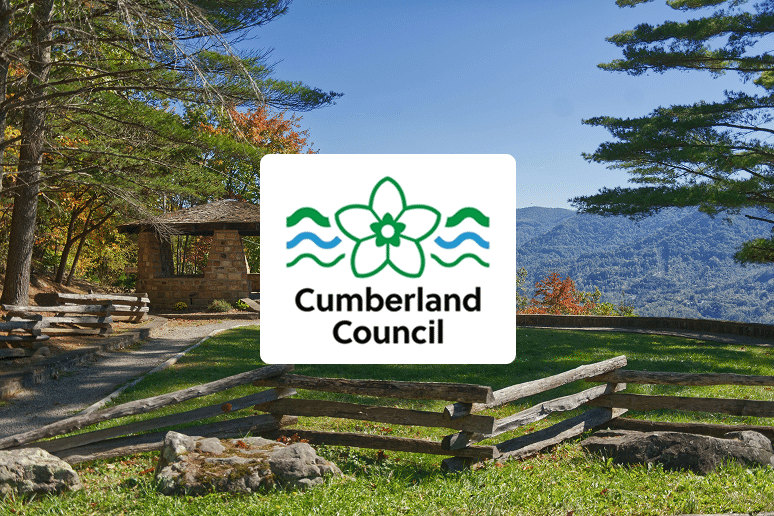In a move designed to help residents reduce their energy bills and carbon footprint, Cumberland Council has officially launched a new online eligibility checker that allows households to find out if they qualify for free or subsidized home energy efficiency upgrades. The tool, part of the council’s wider sustainability strategy, aims to make the process of applying for energy-saving support faster, simpler, and more transparent for local residents.
As energy costs continue to remain a major concern across the UK, the initiative comes at a crucial time for families struggling with heating expenses ahead of the winter season. The council hopes this new digital service will not only reduce financial pressure but also contribute to the region’s long-term goal of achieving net-zero carbon emissions by 2037.
A Step Toward a Greener, More Affordable Future
The online eligibility checker is the latest addition to Cumberland Council’s broader “Warm Homes Cumberland” program, a campaign focused on improving insulation, installing low-carbon heating systems, and upgrading inefficient properties across the region.
Residents can now use the tool to quickly determine whether their household qualifies for assistance under government-backed schemes such as the Home Upgrade Grant (HUG), Energy Company Obligation (ECO), or the Local Authority Delivery (LAD) fund.
By entering basic details about their home, income, and energy usage, users receive instant feedback on available grants and energy-saving options — from loft and wall insulation to solar panels and air-source heat pumps.
A spokesperson for the council described the launch as a “major milestone” in Cumberland’s efforts to make sustainable living accessible to everyone:
“Our goal is to ensure no household is left behind in the transition to cleaner, more efficient energy. The new eligibility checker helps residents identify the support they’re entitled to in just a few clicks.”
Addressing Rising Energy Costs
The launch comes at a time when households across the UK are grappling with persistently high energy bills. Despite government interventions and a drop in wholesale energy prices, many families continue to face financial strain.
According to recent data, over 15% of homes in Cumberland are considered fuel poor, meaning they spend a disproportionate share of their income on heating and electricity. The council’s initiative aims to directly address this issue by encouraging energy efficiency — reducing energy waste, improving comfort, and lowering costs in the long term.
By helping residents insulate their homes and upgrade to more efficient systems, the council estimates that average annual savings could reach between £250 and £600 per household depending on the type of improvements made.
How the Eligibility Checker Works
The digital checker has been designed with accessibility in mind. Residents can visit the council’s official website and complete the short online questionnaire in just a few minutes.
The tool asks for:
- The type and age of the property
- Current heating methods (such as gas, electric, or oil)
- Household income and energy usage
- Any existing insulation or energy-efficient installations
Based on the responses, users are shown the funding schemes and grants they may qualify for. Those who meet the criteria can then submit a follow-up application through the same platform or request assistance from an energy advisor.
Importantly, the system also connects users to trusted local contractors approved by the council, ensuring that installations meet national standards and safety regulations.
Boosting Local Jobs and Green Skills
Beyond reducing emissions and energy costs, the project is also expected to create new employment opportunities in the region. As more homes undergo retrofitting and insulation upgrades, demand for skilled technicians, builders, and energy assessors will rise.
Cumberland Council has confirmed that it will work closely with local training providers to expand programs in green construction and renewable energy installation. This approach supports the government’s national ambition of building a skilled green workforce capable of supporting the transition to a low-carbon economy.
A local contractor in Carlisle said:
“This program is a win-win — it helps families save money and keeps our tradespeople busy with meaningful, sustainable work. It’s exactly the kind of initiative we need to drive economic recovery and environmental progress.”
Community Support and Awareness
The council is also rolling out a community awareness campaign to ensure that residents know about the new eligibility checker and the benefits of home energy upgrades.
Public libraries, community centers, and local schools will distribute leaflets and hold information sessions to assist those who may not be confident using digital tools. A dedicated helpline has also been launched to provide phone-based assistance for individuals without internet access.
Councillor Sarah Williams, who leads the Environment and Sustainability portfolio, said:
“Many households simply don’t realize that they qualify for funding. This tool helps bridge that information gap and ensures every resident can take advantage of the support available. Even small changes — like improving insulation or installing an energy-efficient boiler — can make a huge difference.”
Environmental Impact and Long-Term Vision
The Cumberland Council’s initiative aligns with the UK’s national Net Zero Strategy, which aims to reduce greenhouse gas emissions by at least 78% by 2035 compared to 1990 levels.
Homes and buildings are responsible for nearly 25% of the UK’s total carbon emissions, primarily due to heating and energy inefficiency. By making it easier for homeowners to access grants and retrofit programs, councils like Cumberland play a vital role in the national effort to decarbonize.
Over the next five years, Cumberland Council plans to retrofit thousands of homes, prioritizing low-income and rural households. This long-term effort could save tens of thousands of tonnes of CO₂ emissions annually, while improving public health and living conditions across the region.
Real Stories: Residents Already Benefiting
Even before the tool’s official launch, pilot programs in towns like Workington and Penrith saw hundreds of residents apply for and receive home improvements.
One local resident shared her experience:
“We live in an older home with poor insulation, and our heating bills were sky-high last winter. Thanks to the council’s help, we’ve now got new loft insulation and a more efficient boiler. You can really feel the difference — and our bills have dropped.”
Stories like hers highlight how small upgrades can deliver meaningful change — especially for families balancing household budgets against rising costs of living.
The Road Ahead
Cumberland Council’s digital eligibility checker is expected to serve as a blueprint for other local authorities across the UK looking to streamline their sustainability programs.
The success of this initiative will depend on public engagement, continued government funding, and strong collaboration between local partners. However, early signs are promising: residents are responding positively, and applications have already started to increase within days of launch.
Looking ahead, the council plans to expand the checker to include renewable energy options such as rooftop solar panels and battery storage systems, further empowering households to produce and store their own energy.
Conclusion
Cumberland Council’s launch of its online eligibility checker represents a bold, forward-thinking step in tackling both energy affordability and climate change. It reflects a growing understanding that digital tools can make sustainability accessible to everyone — not just those who can afford private upgrades.
By combining innovation, community engagement, and environmental responsibility, Cumberland has positioned itself at the forefront of local climate action in the UK. For residents, this means warmer homes, lower bills, and a greener future.



